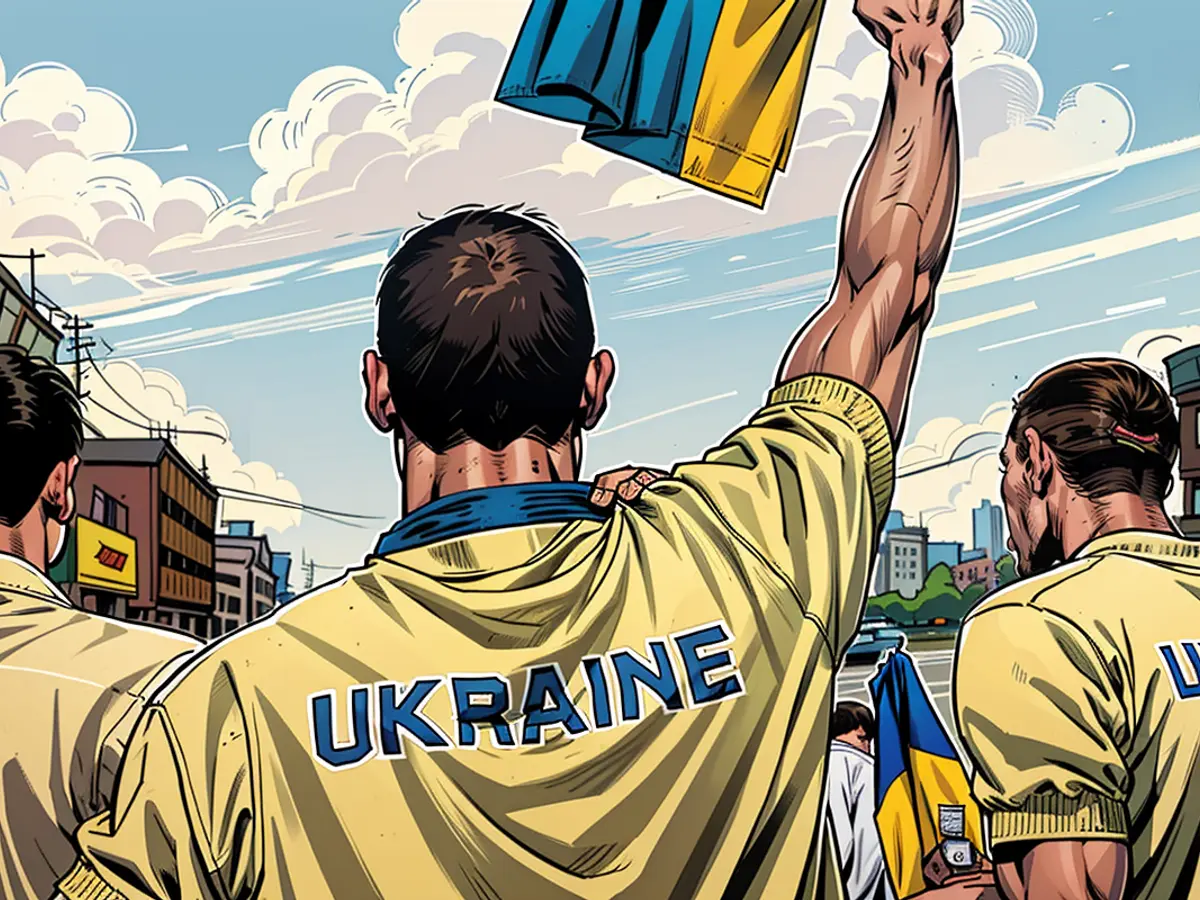Ukrainians receive clear instructions on dealing with Russians
For Ukrainian athletes, the Olympics, given the war at home, present an extreme challenge. Things are even worse for them as Russian and Belarusian athletes run into their path in Paris. There is a clear instruction for this case.
Ukraine's Olympic athletes have criticized the participation of Russians and Belarusians as neutral athletes at the Summer Games in Paris once again. "As long as our people are being killed, our houses in Ukraine are being bombed, and our borders are being occupied, Russia has no right to be at the Olympics," said Vadym Hutzajt, the head of the Ukrainian Olympic Committee. He was referring to the 15 Russians and 17 Belarusians competing under a neutral flag. Russia as a nation was expelled from the IOC due to the Moscow invasion, which is being supported by the affiliated Belarus.
Hutzajt also reported on how his wards currently behave in the Olympic village when Russian or Belarusian athletes cross their path: "Russian and Belarusian athletes do not exist for us. We do not greet them, we do not say hello, we don't even look at them." For the approximately 150 Ukrainian Olympic participants, this is an extreme situation. "All Ukrainians in the Olympic village feel the war, have lost relatives or friends."
Fencer Olha Charlan and tennis player Elina Svitolina made headlines in the past few months for refusing to shake hands with Russian opponents. Charlan now criticized that many former Russian athletes had changed their nationalities and were now competing for other countries in Paris. "This should be checked much more strictly. There is information that some of them are supporting the war."
Delegation leader Hutzajt emphasized the extreme conditions under which his athletes had to prepare. Charlan, for example, comes from Mykolajiv in southern Ukraine, which is a frequent target of Russian rocket and drone fire. "It's hard to imagine how it is for them to train and compete here, always knowing that bad news from home could come at any time."
Similarly, Ukrainian diver Oleksij Sereda's father went to the military after the war began and now fights against the Russian aggressors. Ruder Anastassija Koschenkowa told: "It's hard to see your country in the bombing rain, it's hard to see your own child in the bombs. I think about it constantly that I would just like to hold him in my arms." In response to the question of whether he advises his athletes not to give a handshake to potential Russian or Belarusian opponents during the Olympics, Hutzajt said: "The most important thing is that my athletes do not provoke themselves."
Despite the ongoing challenges at home, Ukraine's Olympic athletes continue to face another obstacle: competing against Russians and Belarusians in the Olympic Games 2024 in Paris. As Hutzajt stated, their presence is unacceptable given the ongoing war and the loss of lives and homes in Ukraine.
In response to this, Hutzajt has instructed Ukrainian athletes to avoid any interaction with Russian and Belarusian athletes, indicating a strained atmosphere among competitors ahead of the Olympics.








